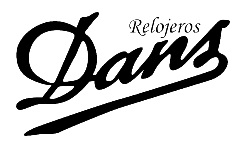bodhy78
Forer@ Senior
Verificad@ con 2FA
He encontrado este articulo y me ha resultado interesante su lectura.
Trata de como un vendedor de una relojeria vende sus relojes y el modo en que trata a sus clientes, normalmente solemos leer en el foro experiencias de los compañeros de como les atienden....en este caso lo vemos desde el punto de vista de quien lo vende.
Normalmente no posteo cosas en ingles ya que son de lectura mas pesada y no asequibles para todo el mundo pero me ha gustado y os lo dejo por si os apetece dedicarle un rato.
Fuente: https://www.wsj.com/articles/SB10001424052970203517304574304322707126380
When a man in a Cartier watch stepped into the IWC Schaffhausen boutique in Beverly Hills recently, salesman Hua Huynh sprang into action. He led the customer to a case of Aquatimers, the Swiss brand’s line of self-winding dive watches. “What’s the damage?” asked the customer, pointing at one model. “The value is $5,800,” replied Mr. Huynh. “Would you like to try it?”
Hovering nearby, Jean-Marie Brücker winced.
After the gentleman replied, “Nahh,” and left, Mr. Brücker closed in on the salesman. Instead of asking a yes-or-no question, he chided, “next time, you say, ‘I invite you to try the watch. Please take a seat.’ ” He pantomimed swiftly laying the watch on a suede-lined tray, leaving the customer no easy out.
Mr. Brücker, a former Xerox salesman, is training IWC Schaffhausen’s sales force to sell expensive watches in a recession. After years of double-digit sales growth, sales of Swiss watches have fallen off drastically. Watchmakers like IWC—a 140-year-old company whose watches are considered collectors’ items and generally cost between $3,000 and $300,000—are having to re-learn the old-fashioned art of salesmanship.
The worst declines for Swiss watches are in the U.S., where sales fell 42% in May from a year earlier, according to the Swiss Watch Federation. The slowdown is visible at watch-collecting events. A lavishly catered party in Los Angeles for Breitling, another watch maker, recently drew fans who dined and sipped champagne, but the table displaying Breitling’s latest models was the loneliest in the place. Breitling, too, is getting creative, experimenting with holding sales events to which wives aren’t invited. “We’re finding they buy more when their wives aren’t there,” says Marie Bodman, chief executive of Breitling USA.
These days, at least 60% of customers enter high-end watch boutiques to service their own watches rather than to buy new ones, says Mr. Brücker, who coaches salespeople to lavish attention on these mostly disgruntled clients in order to rebuild their loyalty.
Mr. Brücker has come far from his Xerox roots. As chief executive of Pôle Luxe, a Paris-based luxury-sales consulting group, he lists numerous high-end brands, including Cie. Financière Richemont, which owns IWC as well as Cartier and Van Cleef & Arpels, among his clients. His business is booming in the recession. He is opening new offices in New York, Hong Kong and Shanghai. He drives a Ferrari and has 61 luxury watches of his own, including four IWCs.
I observed his training of IWC associates for two days, watching as Mr. Brücker urged his students to say “value” rather than “price” and to sell “romance” rather than “products.” Benoit de Clerck, president of IWC North America, and Frederick Martel, the company’s marketing director, scribbled notes and peppered him with questions alongside their salespeople.
Mr. Brücker looked the part of a luxury customer, wearing Car Shoe moccasins and an IWC Big Pilot watch, which has shock absorbers to help it keep time under rough flying conditions. He used PowerPoint to impart what he calls the “macaroon technique,” referring to the sandwich-like French macaron pastry. This can be applied to most any product (including, presumably, a Xerox machine) and goes something like this: “Madam, this timepiece (or diamond or handbag) comes from our finest workshop and it has a value of $10,000. If you buy it, your children are sure to enjoy it for generations to come.”
That pesky number is sandwiched between the product’s more romantic benefits. “We sell luxury—it’s an emotion,” Mr. Brücker instructed.
Flattery sells, so to further those positive emotions, he insists that sales associates compliment the customer’s own watch, even if it’s from a competitor.
But don’t expect to bargain with his clients. He coaches them to offer a gift if a discount is requested. “The minute you leave the boutique, you forget” the discount, he said. A closet in IWC’s boutique is filled with coffee mugs, umbrellas, watch-winding devices and the like.
His methods dictate that salespeople lay the client’s well-worn watch on a tray between two shiny new ones, creating a contrast that subtly suggests it’s time to upgrade.
Because guilt over spending is playing a big role in the sales downturn, he teaches salespeople to suggest a “sorry gift”—of another timepiece—for a wife who might be disappointed that her husband just dropped a sizable sum on his own wrist.
On the second day of training, shop manager Arnaud Gouel moved in to welcome a couple. He amiably toured them through the boutique and offered them a coffee from the store’s Nespresso machine. Then he donned black gloves and placed the gentleman’s watch on a tray between two IWC timepieces. He strapped a rugged but elegant Big Pilot on the man’s wrist.
Mr. Brücker, hovering nearby, sent Mr. Huynh over to offer the wife a watch. “It’s not to sell her a watch. It’s to occupy her,” he whispered. “She’s bored and she will say, ‘OK, let’s go.’ ”
These happen to be key tenets of casino marketing, which revolves around flattering men, distracting their wives, and keeping them around as long as possible; the longer they stay, the more likely they are to spend money. But Mr. Brücker was never disdainful of customers—in fact, he championed the need for better, more thoughtful service that makes the customer sense caring and quality —the stuff of luxury.
“You’re selling pure emotion,” he said. “That’s why I love this job.”
Trata de como un vendedor de una relojeria vende sus relojes y el modo en que trata a sus clientes, normalmente solemos leer en el foro experiencias de los compañeros de como les atienden....en este caso lo vemos desde el punto de vista de quien lo vende.
Normalmente no posteo cosas en ingles ya que son de lectura mas pesada y no asequibles para todo el mundo pero me ha gustado y os lo dejo por si os apetece dedicarle un rato.
Fuente: https://www.wsj.com/articles/SB10001424052970203517304574304322707126380
When a man in a Cartier watch stepped into the IWC Schaffhausen boutique in Beverly Hills recently, salesman Hua Huynh sprang into action. He led the customer to a case of Aquatimers, the Swiss brand’s line of self-winding dive watches. “What’s the damage?” asked the customer, pointing at one model. “The value is $5,800,” replied Mr. Huynh. “Would you like to try it?”
Hovering nearby, Jean-Marie Brücker winced.
After the gentleman replied, “Nahh,” and left, Mr. Brücker closed in on the salesman. Instead of asking a yes-or-no question, he chided, “next time, you say, ‘I invite you to try the watch. Please take a seat.’ ” He pantomimed swiftly laying the watch on a suede-lined tray, leaving the customer no easy out.
Mr. Brücker, a former Xerox salesman, is training IWC Schaffhausen’s sales force to sell expensive watches in a recession. After years of double-digit sales growth, sales of Swiss watches have fallen off drastically. Watchmakers like IWC—a 140-year-old company whose watches are considered collectors’ items and generally cost between $3,000 and $300,000—are having to re-learn the old-fashioned art of salesmanship.
The worst declines for Swiss watches are in the U.S., where sales fell 42% in May from a year earlier, according to the Swiss Watch Federation. The slowdown is visible at watch-collecting events. A lavishly catered party in Los Angeles for Breitling, another watch maker, recently drew fans who dined and sipped champagne, but the table displaying Breitling’s latest models was the loneliest in the place. Breitling, too, is getting creative, experimenting with holding sales events to which wives aren’t invited. “We’re finding they buy more when their wives aren’t there,” says Marie Bodman, chief executive of Breitling USA.
These days, at least 60% of customers enter high-end watch boutiques to service their own watches rather than to buy new ones, says Mr. Brücker, who coaches salespeople to lavish attention on these mostly disgruntled clients in order to rebuild their loyalty.
Mr. Brücker has come far from his Xerox roots. As chief executive of Pôle Luxe, a Paris-based luxury-sales consulting group, he lists numerous high-end brands, including Cie. Financière Richemont, which owns IWC as well as Cartier and Van Cleef & Arpels, among his clients. His business is booming in the recession. He is opening new offices in New York, Hong Kong and Shanghai. He drives a Ferrari and has 61 luxury watches of his own, including four IWCs.
I observed his training of IWC associates for two days, watching as Mr. Brücker urged his students to say “value” rather than “price” and to sell “romance” rather than “products.” Benoit de Clerck, president of IWC North America, and Frederick Martel, the company’s marketing director, scribbled notes and peppered him with questions alongside their salespeople.
Mr. Brücker looked the part of a luxury customer, wearing Car Shoe moccasins and an IWC Big Pilot watch, which has shock absorbers to help it keep time under rough flying conditions. He used PowerPoint to impart what he calls the “macaroon technique,” referring to the sandwich-like French macaron pastry. This can be applied to most any product (including, presumably, a Xerox machine) and goes something like this: “Madam, this timepiece (or diamond or handbag) comes from our finest workshop and it has a value of $10,000. If you buy it, your children are sure to enjoy it for generations to come.”
That pesky number is sandwiched between the product’s more romantic benefits. “We sell luxury—it’s an emotion,” Mr. Brücker instructed.
Flattery sells, so to further those positive emotions, he insists that sales associates compliment the customer’s own watch, even if it’s from a competitor.
But don’t expect to bargain with his clients. He coaches them to offer a gift if a discount is requested. “The minute you leave the boutique, you forget” the discount, he said. A closet in IWC’s boutique is filled with coffee mugs, umbrellas, watch-winding devices and the like.
His methods dictate that salespeople lay the client’s well-worn watch on a tray between two shiny new ones, creating a contrast that subtly suggests it’s time to upgrade.
Because guilt over spending is playing a big role in the sales downturn, he teaches salespeople to suggest a “sorry gift”—of another timepiece—for a wife who might be disappointed that her husband just dropped a sizable sum on his own wrist.
On the second day of training, shop manager Arnaud Gouel moved in to welcome a couple. He amiably toured them through the boutique and offered them a coffee from the store’s Nespresso machine. Then he donned black gloves and placed the gentleman’s watch on a tray between two IWC timepieces. He strapped a rugged but elegant Big Pilot on the man’s wrist.
Mr. Brücker, hovering nearby, sent Mr. Huynh over to offer the wife a watch. “It’s not to sell her a watch. It’s to occupy her,” he whispered. “She’s bored and she will say, ‘OK, let’s go.’ ”
These happen to be key tenets of casino marketing, which revolves around flattering men, distracting their wives, and keeping them around as long as possible; the longer they stay, the more likely they are to spend money. But Mr. Brücker was never disdainful of customers—in fact, he championed the need for better, more thoughtful service that makes the customer sense caring and quality —the stuff of luxury.
“You’re selling pure emotion,” he said. “That’s why I love this job.”




 :
: